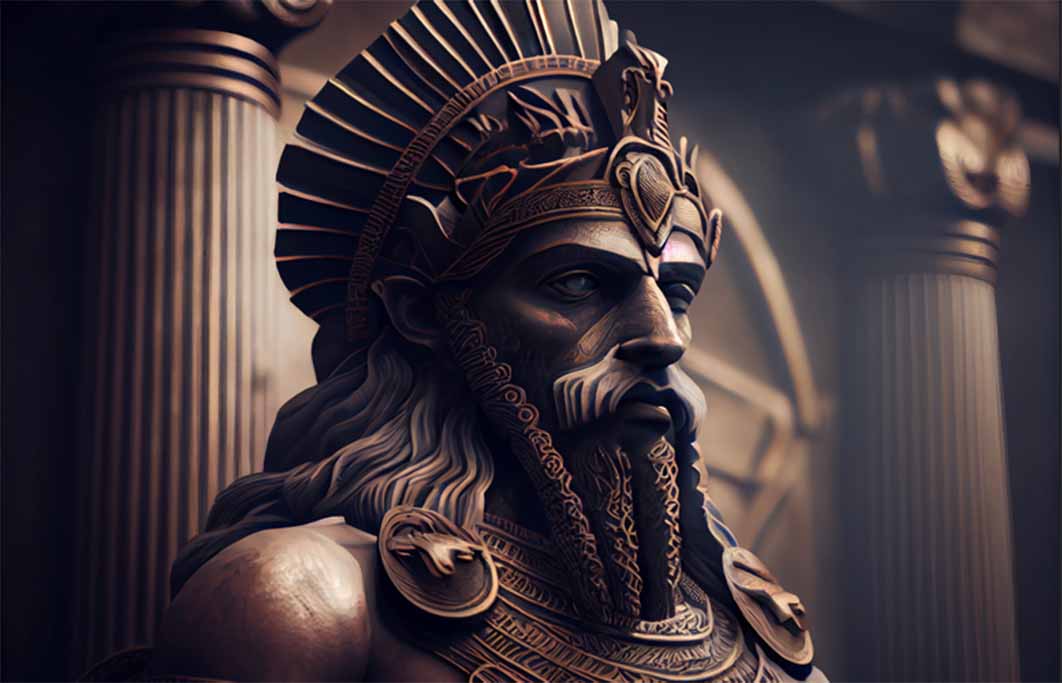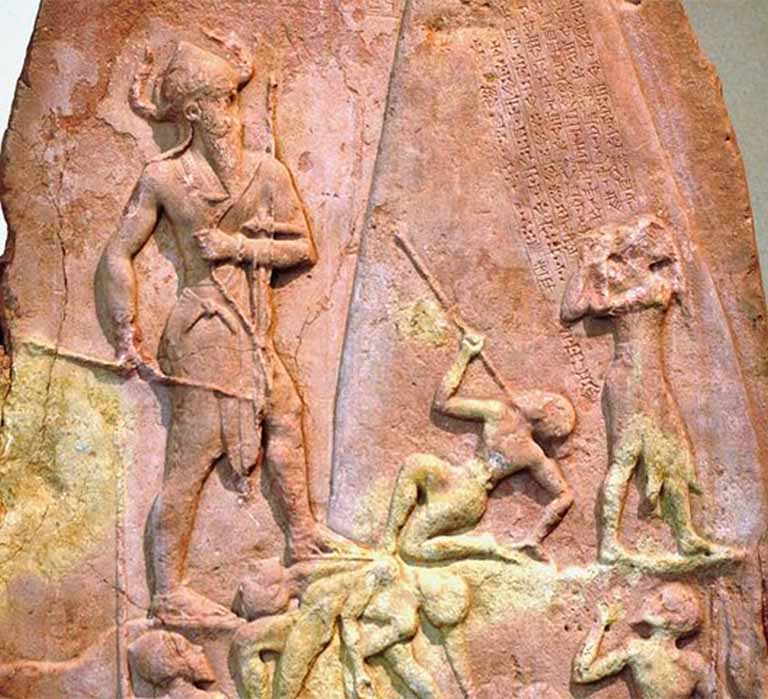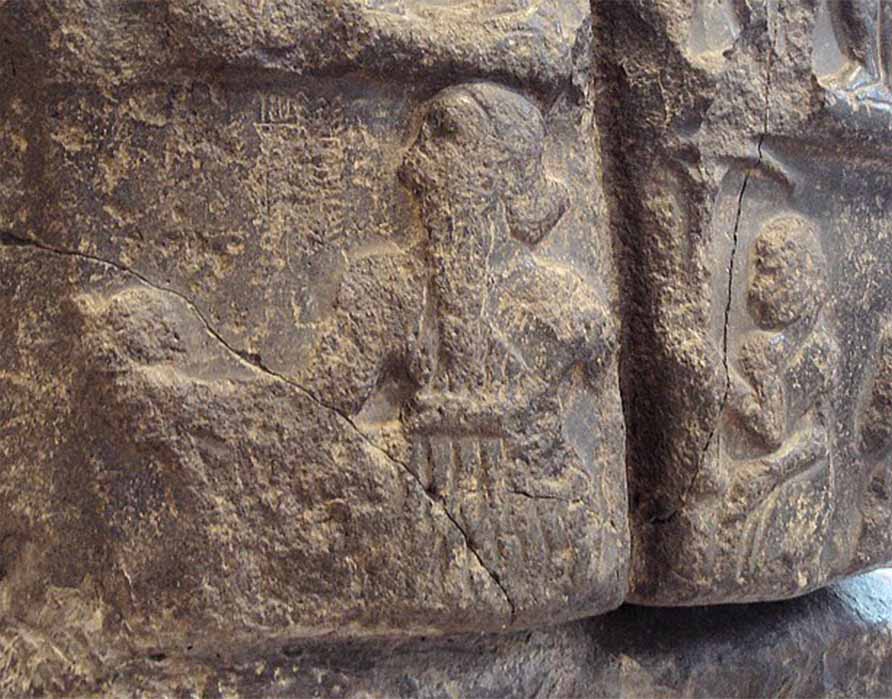
Naram-Sin - The World’s First God-Emperor
During the second half of the third millennium BC the land of Sumer and in fact the entire Mesopotamian region came under the control of the Akkadians, a Semitic people who had lived for centuries among the Sumerians. When the Akkadian Emperors took control of the land, they established the very first world empire, with their rule and dominium stretching to the furthest corners of the ancient Middle East. In later times they were commemorated as the greatest of all those who had ever ruled over ancient Mesopotamia.
The Akkadian Emperors were not only regarded as scions of the gods, the greatest among them was even worshipped as one of the great gods of Sumer, and that during his own lifetime. The name of this very first God-Emperor who appeared on Earth was Naram-Sin, son or grandson of Sargon the Great of Akkad, founder of the Empire. The greatness of this god-man is visible in his rule over the four corners of the known world. In my opinion, he was the greatest ruler the ancient world had seen in all the ages leading up to the Roman Empire. Although other kings, such as Alexander the Great, conquered much larger areas and geographical regions, it must be remembered that the ancient world was much less integrated and much less accessible in the time of the Akkadian rulers than in later periods.
- King Sargon of Akkad As The Second-Coming Dumuzi
- Was the Historical Egyptian Osiris Perhaps Sargon of Akkad?
- Unmasking Ugarit’s Mysterious Asiatic King-God Commanding The Habiru
A Magnificent Victory Stele
I came across this extraordinary God-Emperor for the first time during a visit to the Louvre Museum in Paris in 1998. This museum houses the Victory Stele of Naram-Sin, which commemorates his victory over the Lulubi people of the Zagros Mountains in the northwestern regions of present-day Iran. The stele simply captivates the imagination and must be one of the most magnificent works of art the ancient world ever produced.

Stele of the Akkadian king Naram-Sin, ruler of the Akkadian Empire. (Public Domain)
On this stele Naram-Sin is shown as a powerful, omnipotent ruler, wearing a helmet with horns, signifying his divine nature and godhood. No other Mesopotamian king was ever portrayed as a god in this way. He stands in front of a mountain, more or less in the form of a pyramid, representing the Zagros Mountains, with his conquered enemies from these mountains under his feet. When looking at this stele, one does not only see the image of a conquering king, but, in some strange way, one becomes acutely aware of the greatness and glory of this great and outstanding god-man or God-Emperor.
Gestae Naram-Sinaeorum
Naram-Sin was not only a mighty and powerful king without equal, who ruled over the furthest corners of the then known world, his mighty deeds, like those of Sargon the Great before him, also gave rise to great legends and myths told and conveyed all over the world for millennia to come. The epic deeds were recounted in epic songs performed by court bards, painting an impressive picture of those rulers and the heroic age of outstanding greatness to which they belonged.
Today, scholars have access to thirteen heroic Akkadian tales compared to the nine Sumerian ones focusing on the Uruk heroes. The great epic tradition of the Akkadian Emperors is reflected in the Gestae Akkadaeorum, the legends of the Emperors of Akkad. The saga tradition of the founder of the Akkadian dynasty, Sargon the Great, is called the Sargon Epics or Res Gestae Sargonis. The saga tradition of Naram-Sin is reflected in the Gestae Naram-Sinaeorum.

Sargon on his victory stele, followed by an attendant holding a royal umbrella. The name of Sargon in cuneiform ("King Sargon") appears faintly in front of his face. Louvre Museum (ALFGRN/CC BY-SA 2.0)




